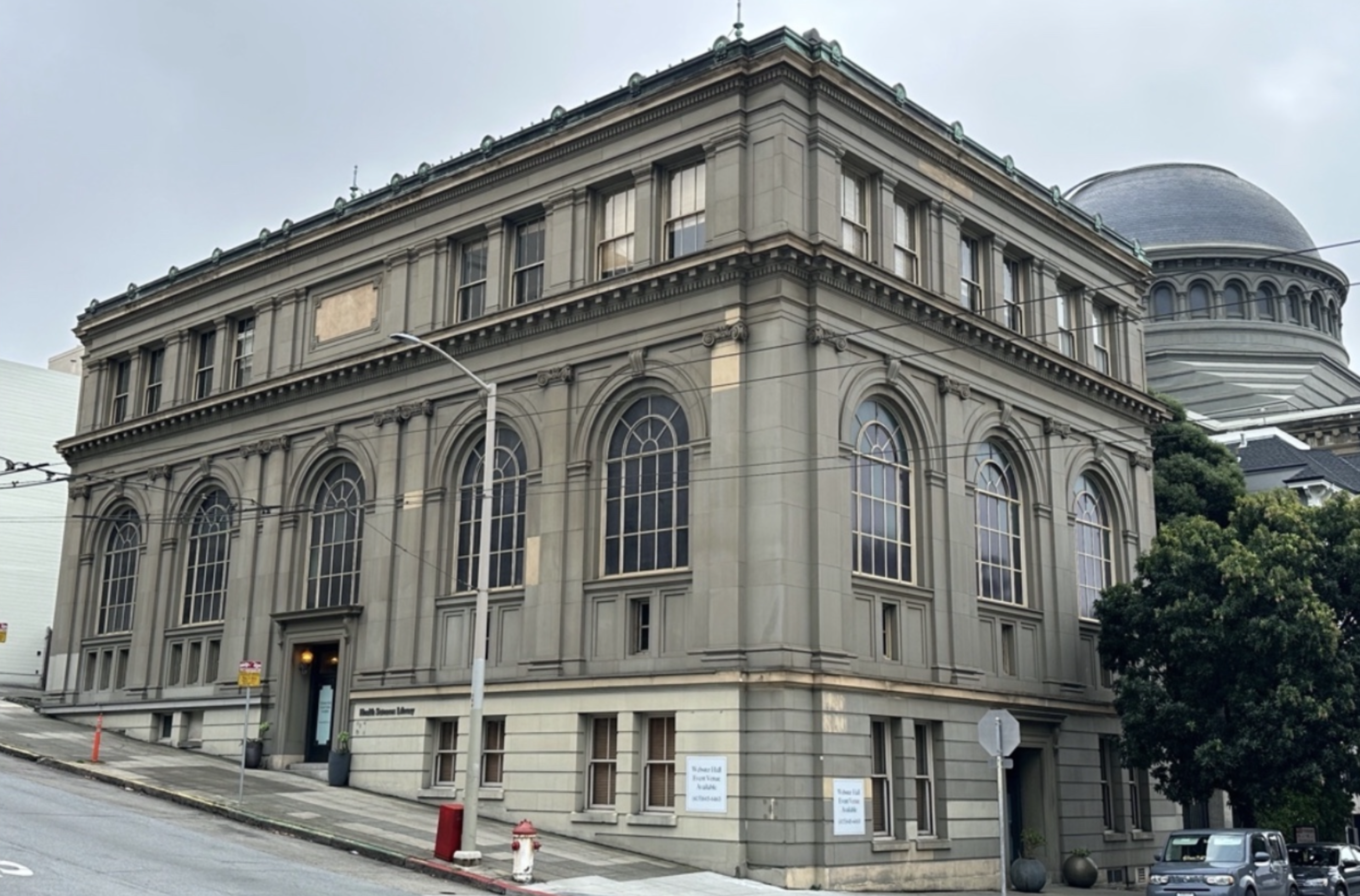Supervisors on Tuesday struck down a challenge to the redevelopment of a former medical library in the ritzy Pacific Heights neighborhood, a decision that could have major consequences for housing construction in the city for years to come.
The proposal aims to preserve the facade of the old Lane Medical Library building at the corner of Webster and Sacramento streets and add two towers—one 68 feet in height and the other 78 feet—that will collectively add 24 units of housing. The existing building is about the same height as the shorter residential tower.
A group of residents pushed back against an exemption that will allow the project to move forward without an environmental review, a routine step in the construction process that can tack on months or even years to the approval process.
But officials with the city’s Planning Department said the project has already undergone a review through San Francisco’s housing plan from two years ago. According to Tuija Catalano, a land use attorney and sponsor for the project, it’s the first time the city has faced opposition to using the Housing Element in lieu of a more site-specific environmental review.
READ MORE: San Francisco relaxed its housing laws. But don’t expect a building boom
Supervisor Catherine Stefani, who represents the area where the project is located, agreed with the Planning Department’s assessment on Tuesday, saying that allowing the challenge to go forward could “effectively prohibit streamlining altogether.” Board President Aaron Peskin was the only supervisor to support the opposition to the project.
Had supervisors sided with the project’s opposition, the city could have potentially faced legal scrutiny under a law signed by Gov. Gavin Newsom last year. The law, AB 1633, aims to hold municipalities accountable if they use environmental reviews to block new housing.
The library was built in 1912 by architect Albert Pissis, according to a history of the site compiled (opens in new tab) by Stanford University. The building is currently being used as a private event space.
READ MORE: Nonprofit to build 70 senior homes on site of old Bernal Heights Big Lots
Richard Drury, an attorney who spoke out against the project on Tuesday, said the exemption will “open the floodgates” for developers to bypass environmental reviews “in a very irresponsible way.”
“One of the reasons that San Francisco is a desirable place where people want to live is because we respect our history,” Drury told The Standard in an interview. “We have these great neighborhoods, and bulldozing our historic landmarks or destroying them is not good for the city.”
Jake Price, an organizer for the Housing Action Coalition in San Francisco, said that argument is “not the way to conduct business with the housing shortage we’re facing.
“It is just a way of slowing down and adding uncertainty to housing projects,” Price said.
